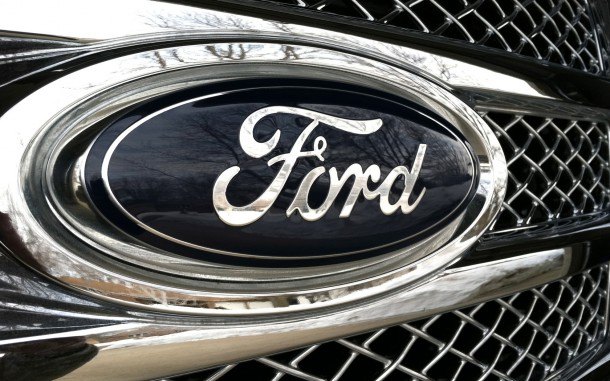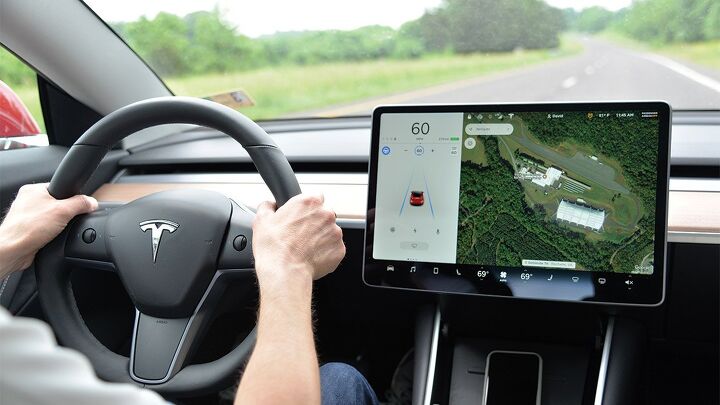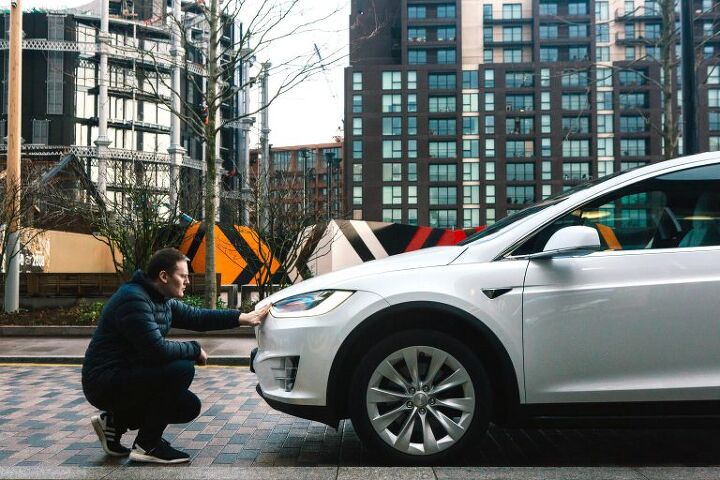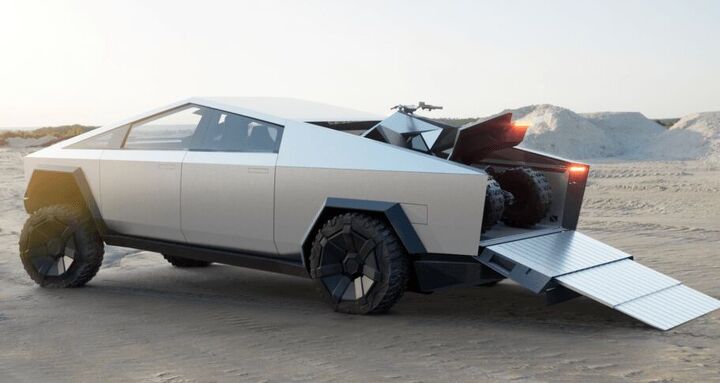#Technology
John Cooper Works Mini EV or the Evolution of Small Appliances?
John Cooper Works Mini and electrification, do they go together? Do buyers who pay a premium for the JCW brand want or need an electric version?
Apple ICar: The Next Big Thing?
Apple has targeted 2024 to produce a passenger vehicle that could include proprietary self-driving and battery technologies, according to Reuters.
GMC Plotting Super Cruise for Sierra Denali
On Wednesday, General Motors announced plans to launch a version of Super Cruise on the 2022 GMC Sierra Denali modified to work with trailers. The hands-free driver assistance system (GM can’t call it “autonomous” because it technically isn’t) will stop being exclusive to Cadillac products and branch out into premium offerings from GMC and Chevrolet’s Bolt EV.
While unavailable until late in 2021, the next round of vehicles to be equipped with Super Cruise is supposed to see continued improvements to the system that allow for greater coverage. When the system originally launched on the Cadillac CT6 sedan, it was only eligible for use on specific divided highways for safety reasons. The greater emphasis on avoiding accidents was appreciated but it made the system seem more like a flashy gimmick than something any serious person would use on the regular. But GM has taken great strides to make sure that didn’t remain the case — hence the new trailer capabilities and ever-widening operating area.
Reinventing the Wheel: Daimler Intentionally Becoming a Smaller Company to Facilitate Tech
Daimler Chairman Ola Källenius went against the grain on Thursday by admitting the company he’s been tasked with overseeing will become significantly smaller in five years. That’s normally not the kind of thing you want to telegraph to shareholders via the media but he’s convinced this is the best course of action for the business.
“The next five years we will become a smaller company,” Källenius told Reuters. “We will have a fundamental change in the industrial footprint on the powertrain side.”
The future of Daimler apparently involves a half-decade metamorphosis into a services-focused software company that just so happens to build vehicles. But the vehicles won’t be those internal-combustion jobs that you grew up around. Instead, they’ll be hyper-efficient electrics from Mercedes-Benz as it re-imagines luxury within the strict confines of environmental sustainability. As a byproduct, Daimler will need fewer employees to help manufacture automobiles.
Ford's Upcoming E-Transit is Kansas City Resident, Means $100M Plant Investment
As we reported a couple of weeks ago, Ford is set to debut its new E-Transit electric van tomorrow. An announcement was made yesterday regarding the Transit’s production location. And the new van brings along some cash, and jobs as well.
Ford Adding Big Boy Touchscreen to 2021 Edge
Despite rumors that the current-generation Ford Edge will be the company’s last, Blue Oval has decided to give the crossover a 12-inch touchscreen as standard equipment for 2021. You probably didn’t ask for it, you definitely don’t need it, and it will likely increase the chances of a horrific accident when someone has to take their eyes off the road to use it. But it’s coming and will be the largest-in-class center stack screen going into production, trumping the optional 10.1-inch unit that’s available on the larger Ford Explorer.
Fortunately, it doesn’t seem to take up much more real estate, as the automaker has chosen to install it portrait style. But it does appear to be supplanting psychical climate controls while leaving knobs for the volume and radio turning/track selection. Other updates to the 2021 Edge include fresh wheel designs, additional interior trim choices, and a couple of new exterior colors — both of which happen to be shades of gray.
EVs Have Given Asian Suppliers Unrivaled Industrial Might
Seen by some as a moral imperative, electrification is swiftly changing the dynamics of the automotive industry. While automakers spend billions of dollars developing EVs and securing the necessary partners, many are becoming dependent on a handful of companies in Asia for the all-important battery cells needed to power the damn things. It’s gotten so serious that the U.S. government has taken an interest following a December 2019 report from the Institute for Defense Analyses that claimed battery manufacturers had taken on an “outsized importance” in the automotive sector.
It also said the United States would be at a distinct disadvantage if there are supply shortages — which is something that has already happened and is presumed to worsen as more electric vehicles flood into the market over the next few years. The automotive industry is pushing hard into electrification as governments around the world attempt to plot out an elaborate plan to supplant the internal combustion vehicle with EVs. But there are concerns that this has stacked the deck for a small number of suppliers from China, South Korea, and Japan.
Toyota R&D Creating $800 Million Investment Fund
On Thursday, Toyota Motor Corp.’s research division announced it would create an $800 million global investment fund. While important news, Toyota’s dispatch was expected. The business had previously mentioned it was assembling a new holding company called Woven in July, noting that the entity would be focused on heavily upon software development and finding new partners for its most advanced projects.
Most of those seem to be in support of the “mobility as a service” concept that seeks to remove customers’ ability to own vehicles. The rest are interested in promoting alternative energy solutions or social engineering how we’ll be living in the future via “smart cities.” The fund also seems to be helping replace Toyota Research Institute-Advanced Development (TRI-AD). In fact, the Japanese R&D arm was actually the one that announced the $800 million “global growth-stage investment fund” that officially creates Woven Capital.
From Russia, With Malware? Tesla Thwarts Cyber Attack
A criminal complaint filed this week details a very Cold War-like plot to cripple Tesla from the inside. Federal prosecutors and the automaker claim a Russian “tourist” attempted to coerce an employee of Tesla’s Nevada Gigafactory to infect the company’s system with malware, and in doing so receive a payment of $1 million.
The employee reportedly turned down the offer and squealed on the so-called tourist, leading to an FBI sting operation — as well as this week’s criminal complaint.
Elon Musk Hints at Beefier Batteries
There’s another B-Day set to occur next month, and this one has nothing to do with the Ford Bronco. “Battery Day” is what Tesla dubs September 22nd — the day of its annual shareholder’s meeting, but also the date of a planned technology reveal.
Tesla has suggested its near future holds great advancements in energy density, meaning far greater miles from a same-sized battery. In response to an online query, company CEO Elon Musk hinted that the EV maker’s batteries could travel 50 percent longer on a charge.
J.D. Power Reveals What Owners Find Annoying About Automotive Technology
Today’s automobiles are loaded with the kind of technology our grandparents could only dream about. Unfortunately, some dreams aren’t all they’re cracked up to be, and we’ve often bemoaned the many annoyances associated with modern vehicles.
J.D. Power recently shared its Tech Experience Index (TXI) Study, which has been modified to better assess specific features American drivers did and did not enjoy. The general takeaway seems to be that the average motorist feels pretty good about outward-facing cameras and anything else that improves a car’s outward visibility (handy in an era of extra chubby structural pillars).
However, the more intrusive safety inclusions that actively modify how the vehicle responds to the world around it didn’t seem to get nearly as much love, with many respondents suggesting they don’t trust the systems to behave in a predictable manner. It’s something we’re in broad agreement with and echoes many of the complaints we’ve heard from readers, friends, or rattling within our own skulls.
A Dating App for Tesla Owners? It Could Be Real, but It's Not Spectacular
Man, this is really something. The 145,000th piece of evidence just landed in support of the hypothesis that Tesla is, in fact, a cult, and that activism and ideology has replaced religion in the wealthier, progressive, and more youthful corners of America.
Which brings us to Tesla Dating.
GM Shares Dystopian Safety Tech, Ford Says Remote Work May Continue Into 2021
General Motors said it plans to share some of the safety technology it developed as a countermeasure to the coronavirus pandemic this week. These include a thermal scanning kiosk that uses infrared imaging to take temperatures of people as they stream into facilities, as well as a touchless printer app designed to keep staff from repeatedly touching the control panel. However, it’s the third item, GM’s contact-tracing software, that’s the most novel and controversial.
Practically every company in the world is working on ways to better track people, and their efforts have only accelerated during the pandemic. The presumption here is that by knowing every person someone has come into contact with, you can effectively track the progress of a virus. Despite sounding terrifyingly dystopian just a few years earlier, the notion has become a favorite among tech giants — most of whom are working on their own version.
GM’s involves a wristband, integrated into iOS and Android devices, that keeps tabs on how close employees are to each other. The company has since added support for Bluetooth beacons.
“We believe our application advances the state of the art when it comes to mobile apps for contact tracing, which is the subject of massive software development efforts across multiple industries today,” Tony Bolton, GM’s chief information officer of Global Telecommunications and End-User Services, said in a release.
With Range Comes Dominance? Daimler Strengthens Relationship With Chinese Battery Maker CATL
With practically every automaker on the planet attempting to make the electric vehicle segment work for them as well as Tesla has, they’re stepping all over each other to gain access to the components necessary to build them.
Everything from securing the raw materials for high-density cells to improving relationships with established battery suppliers will be essential for maximizing market share and embarrassing industry rivals like the little bitches they (hopefully) are. This has been especially true of German brands, who are trying to roll with increasingly demanding emission rules in Europe and China while likewise hoping to improve all-electric range and lower EV production costs.
Daimler, which already has supply deals with SK Innovation, LG Chem and Farasis, is seeking to bolster its partnership with China’s Contemporary Amperex Technology Ltd. (CATL) to address some of the challenges listed above. Mercedes-Benz wants to launch its EQS luxury electric sedan using CATL cells in 2021 — ideally with at least 435 miles of range per charge. While Daimler uses Worldwide Harmonized Light Vehicle Test Procedure (WLTP) metrics that typically average lower when assessed by the U.S. regulators, the proposed target remains enviable.
Musk on Cybertruck: If They Don't Like It, We'll Go Boring
Tesla CEO Elon Musk was on top of his game during an interview with Automotive News last week. By that, we mean his ego and various personality quirks came through like a shaft of sunlight parting a fog bank.
Musk announced during the talk that his company performed no customer research before designing and revealing the polarizing and still-not-clearly-legal Cybertruck to would-be buyers, laughing at the idea. If folks don’t like it, he said, there’s a plan.





























Recent Comments